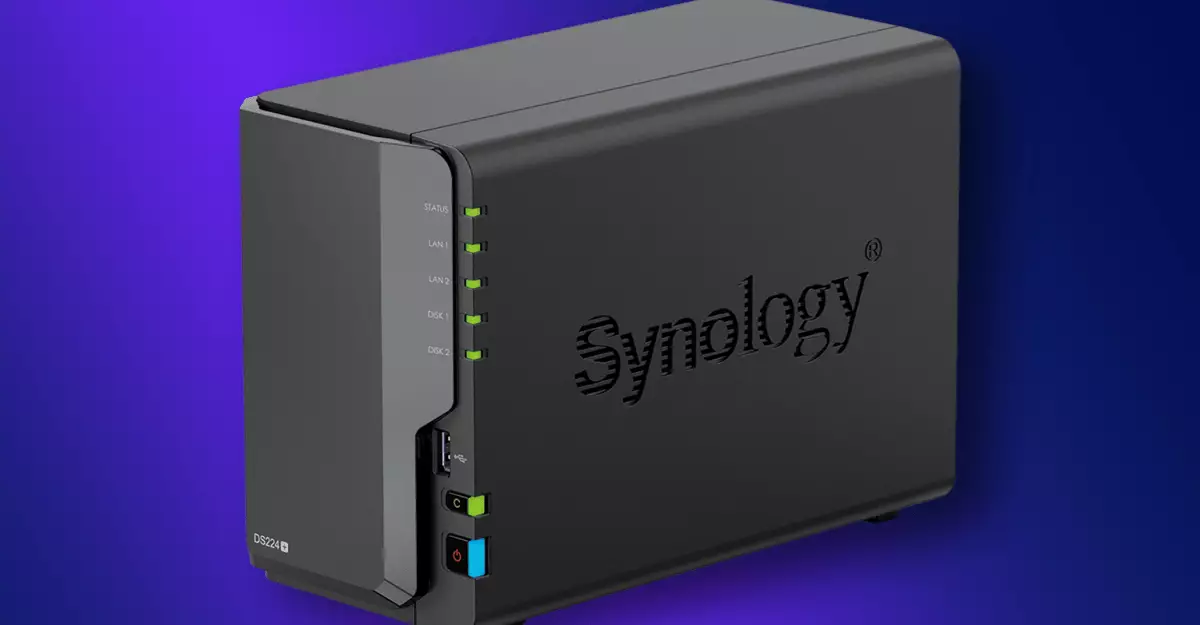In a move that might stir up significant reactions among tech enthusiasts and everyday consumers, Synology has announced new restrictions for third-party hard drives in its upcoming models of network-attached storage (NAS) devices. While the company assures current users that their existing systems will remain unaffected, the implications of these changes can be quite profound for those considering a new investment in Synology’s ecosystem. With these announcements, one has to ponder—are these measures designed to enhance performance and reliability, or do they constitute an unwelcome limitation?
Synology’s Stance: Safety and Reliability
According to the company’s representatives, the motivation behind restricting third-party drives stems from extensive internal testing. Synology claims that drives certified by them undergo rigorous validation processes, thereby minimizing the risk of failures and compatibility issues. While it is hard to contest the importance of ensuring that hardware works seamlessly together, the scope of this initiative raises critical questions. It begs the question of whether a closed ecosystem, worth the touted benefits, fosters user loyalty or breeds dependency on a single brand. In industries that thrive on innovation and variety, such constraints could lead to a backlash from informed consumers seeking greater choice and flexibility in their purchases.
The Financial Implications for Consumers
As Synology moves forward with its new restrictions, one critical concern is financial. Consumers are generally motivated by the balance of quality and price. The implication that only Synology-certified drives will deliver the full suite of features—including pooled storage, lifespan analysis, and other thoughtful functionalities—could force users into a corner. As we know, proprietary hardware often comes at a premium. This situation might drive up costs for customers who may already be reeling from economic pressures. While Synology may argue that this is a choice for reliability, in reality, it can also be seen as a maneuver for profit, stifling competitive pricing models available through third-party vendors.
The Consumer Experience: A Balanced Perspective
To its credit, Synology is not pulling a fast one on its user base by retroactively changing the rules for existing NAS systems. The announced rules will only affect devices released in 2025 and later, and current J- and Value-series models remain unaffected. This consideration demonstrates awareness on Synology’s part; however, it doesn’t mitigate the frustration of users who value their choice in storage solutions. While some may appreciate Synology’s focus on maintaining a reliable ecosystem, others will undoubtedly feel a loss of autonomy and flexibility when their options for choosing affordable and compatible drives dwindle.
The Future of NAS: A Courageous Frontier or a Fading Legacy?
As the tech world moves swiftly towards greater interconnectedness and customization, Synology’s decision could set a precedent that raises eyebrows among its competitors. Will this attempt at controlling the ecosystem become a commonplace strategy for other hardware manufacturers? Or will users band together in rejecting ecosystems that prioritize profits over practicality? If Synology insists on maintaining its tightly-knit specifications while consumers are persistently changing their expectations, we may witness an evolution (or devolution) of network storage like we’ve never seen before.
Additionally, this development could invite scrutiny and even litigation. Consumers today are more informed and connected than ever before. If Synology’s new policy is perceived as a revenue-generating tactic rather than a genuine attempt to enhance user experience and system reliability, backlash may follow—as it did with various tech sectors attempting to pull similar stunts.
As this new chapter for Synology unfolds, what remains clear is the duality of its implications. On one hand, the focus on rigid quality assurance speaks to a commendable desire for reliability, yet it is not devoid of concerns regarding consumer autonomy and pricing models. As users, it is vital to stay alert and demand the flexibility and transparency that an increasingly competitive landscape should afford us. After all, in an age rife with options, who wants to feel locked into a single supplier’s vision? The challenge will be whether Synology can adapt to this scrutiny or whether it will cement its reputation as a decision-maker that prioritizes its interests above those of its dedicated user community.

